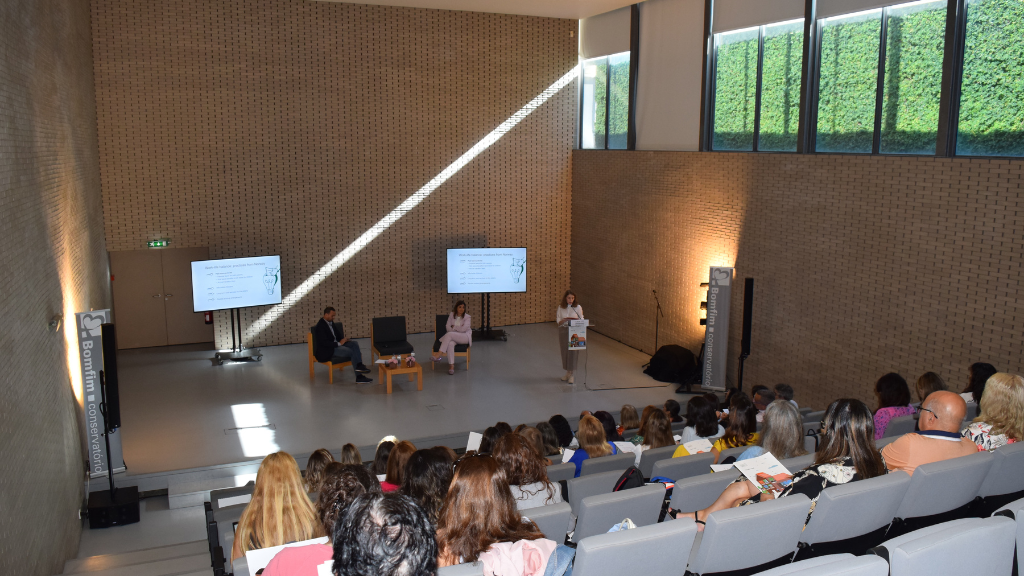On September 28th, at the José Sarmento Auditorium of the Bomfim Conservatory in Braga, the Final Seminar of the "Cávado + Equal" Project took place, with the aim of presenting the main results and final products of this project to the community and the region. The "Cávado + Equal" Project is part of the Work-Life Balance Programme of the EEA Grants Portugal, which aimed to promote healthier, more equitable, and reconciling work environments.
The seminar was attended by approximately 60 participants, including various invited and partnering entities, such as the international partner, KUN Centre for Equality and Diversity, from Norway, and the scientific partner, the Center for Research and Sociology Studies of ISCTE.
The event's opening remarks were delivered by the Vice-President of the Intermunicipal Council of the Cávado Intermunicipal Community (CIM Cávado) and the Mayor of Vila Verde, Júlia Fernandes, and by the President of the Commission for Citizenship and Gender Equality (CIG), Sandra Ribeiro. Both praised the project and emphasized its importance in improving the quality of life for employees. Within the scope of this project, 27 new measures were defined to be implemented in the different organizational contexts of the six municipalities that make up CIM Cávado, covering the 6 Municipal Programs for Equality and Conciliation.
The first seminar panel, which addressed Equality and Conciliation between professional, personal, and family life, featured the presence of Carla Tavares, President of the Commission for Equality in Employment and Labor, and Tanya Skjønhaug from the KUN Centre for Equality and Diversity.
Daniela Gomes, Coordinator of the Social Policy Unit of the Cávado Intermunicipal Community, highlighted the interorganizational work carried out in close collaboration with the various stakeholders from the municipalities of Cávado over the course of three years of the project. This included the development of six diagnoses, six Municipal Programs for Equality and Conciliation, as well as the creation of the first Inter-municipal Strategic Document for Equality and Conciliation (available at: http://www.cimcavado.pt/cavado-igual/).
During the afternoon, in the panel dedicated to Equality and Conciliation, focused on quality in local governments, with moderation by Rosa Oliveira of CIG, representatives from the Municipalities of Lagoa, Cascais, and Felgueiras presented examples of good practices applied in their organizations.
In the last panel, which addressed Conciliation and new labor management practices, the North Regional Deputy Delegate of the Institute for Employment and Vocational Training, I.P., provided information on the latest Pilot Program for a four-day workweek. It was also possible to learn about the work carried out by the Institute of Informatics, IP, of the Ministry of Labor, Solidarity, and Social Security in the context of conciliation in the Central Public Administration.
